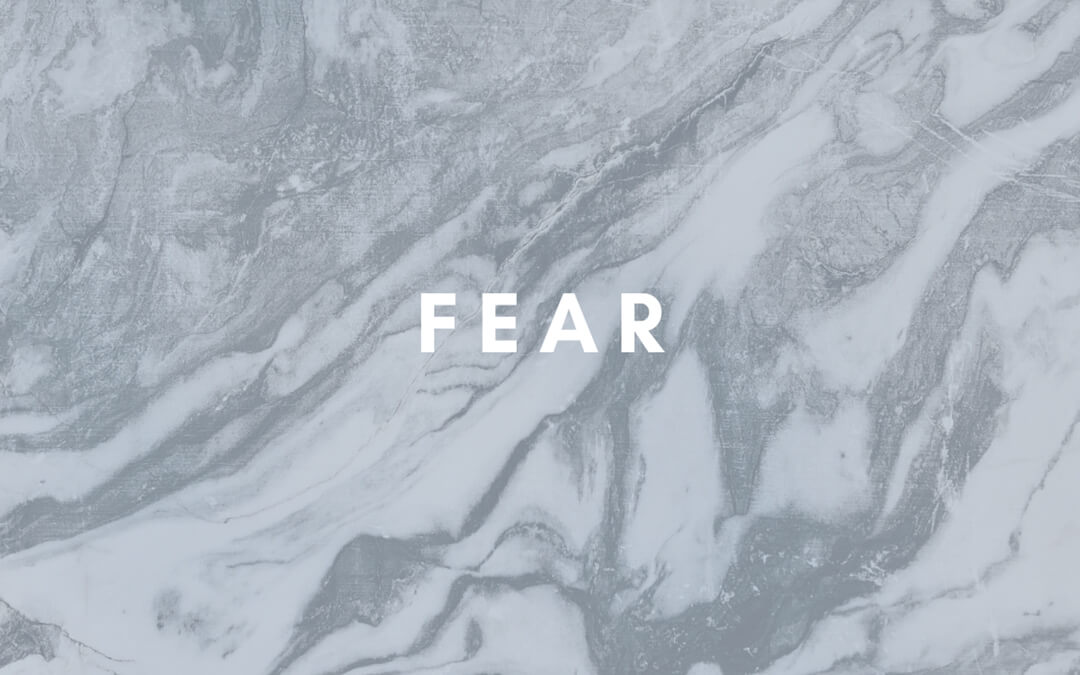Fear (n.): an emotional response caused by perceived threat.
If you’re familiar with the experience featured in this week’s #feelingfriday, congratulations! You’re in good company—not because of some sort of shared character flaw plaguing the masses, but because you’re human and it’s a healthy emotional response.
Yes, you read right. Fear is not a flaw or sign of weakness.
It’s a gift.
It’s often understood to be one of the oldest emotions in our human species. Consider reptiles or early humans navigating a world brimming with threats to their survival, of both the living, and non-living variety. From avoiding predators, to steering away from cliffs and heights, experiencing and honoring the feeling of fear had survival value. Fear was not an emotional fly to swat, but vital to the continuation of their species. Not all too different from those early beings, for us today, fear can be a gift.
This gift, comes from our intuition, our inner voice that offers hunches like, “there’s something here!” seemingly without explanation. When we experience fear, it is our intuition communicating that our sense of security or safety could be threatened. In The Gift of Fear, security specialist and author, Gavin De Becker, suggests that fear is a resource that helps us predict what might come, and protect us from future harm. No need to rely on a magic eight-ball or ask Siri for directions here, but only to listen to the voice inside us.
This gift has value.
Although high in survival value, when in excess or absence, fear can be detrimental. Think of fear as a warning signal or an alert. Fear tells us that in the future, our selves and sense of safety might be threatened. Sort of like a car alarm for your sense of wellbeing. Similar to the car alarm that goes off perpetually, waking up neighbors, too much fear can be debilitating, inhibiting activities of daily living and compromising our health.
On the other end of the spectrum, like a car alarm whose inability to sound fails to notify its owner of a potential a break-in, too little fear can be problematic, and lead to recklessness or harm. We wouldn’t know our safety was about to be compromised, it would likely just happen, because we moved forward.
Like a working car alarm, fear is manageable in moderate amounts– as a brief warning communicating that security might be compromised in the future. When acknowledged our intuition’s alarm system notifies us of potential danger, and allows us to respond in a way that maintains safety. We hear the warning, and take heed. Here, fear holds a healthy place in the spectrum of emotions as a normal part of our emotional experience, like joy, sadness, pain, and grief.
Fear is normal.
But we get it, it’s uncomfortable to experience. If you’re like us, feeling, and even thinking about fear can bring on uneasiness. Often we do what we can to dismiss or minimize our fears. For some, this looks like avoiding the object of a phobia, becoming hyper alert, avoiding situations that frighten us all together, or telling our internal emotional barometer “it’s fine!” when our elevated heartrate, increased sense of alertness, and the pit-like feeling in our gut suggest otherwise.
As with any other emotion, minimizing, suppressing, or ignoring fear isn’t doesn’t make it disappear. Even despite our best efforts, fear is still a part of the human experience and spectrum of emotions, and here at Greenlake Wellness Group, we feel that’s a good thing.
Experiencing fear can be normal, healthy, and even positive—especially when approached with a spirit of curiosity. Rather than judging this emotional response, curiosity can transform fear into a teacher, offering hints about our ideas of safety and the frameworks from which we operate.
Perhaps instead of judging ourselves for our fears, we could take a minute to wonder: What does fear feel like in my body? When do I experience fear? What is this fear telling me? What stories have I been told about fear? About security? Could we go so far as to learn to thank our fear response, for the role it has played in keeping us safe?
Whether you are ready to befriend fear, grieve its absence, or feel paralyzed by its presence in your life, please know that your experience is valid, and we’re with you. Navigating emotions and the terrain of your story is our game, and we have a team of willing, capable, and compassionate therapists ready to help you explore. If you’d like a teammate, feel free to reach out today either by shooting an email to admin@greenlakewellness.com, or by filling out the form below.
Inspired By:
A General Theory of Love: Thomas Lewis, MD, Fari Amini, MD, & Richard Lannon, MD
The Gift of Fear and other Survival Signals that Protect Us From Violence: Gavin De Becker


